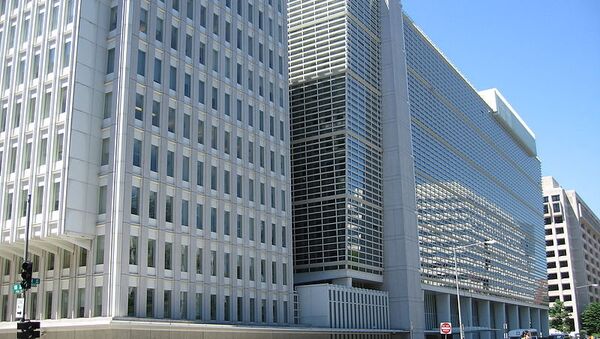MOSCOW, August 7 (RIA Novosti) - The World Bank board’s Committee on Development Effectiveness (CODE) released a new safeguards framework for public review despite concerns from NGOs criticizing the draft for diluting existing safeguards and failing to include measures to protect land tenure and land rights.
A response from Alyansa Tigil Mina, a Philippine NGO coalition representing over 110 groups, warned that the draft safeguards “will further disempower the poor from defending their rights to participation, equity and accountability, while weakening minimum protection for the environment linked with World Bank investments and non-lending activities.”
Mina comments that the draft is alarmingly vague and requires fundamental revision, particularly of points concerning the rights of indigenous people and the impoverished.
According to Inclusive Development International (IDI), the new safeguards would allow governments to disregard international human rights law and the violation of indigenous peoples’ rights, including rights to land, territories and resources. The new draft even provides an opt-out option for governments from the protection of indigenous groups within their borders.
“The effect is that the draft ESF seriously weakens protections for people who will be evicted from their homes, land and livelihoods, increasing the risk that bank-financed projects will impoverish people, exacerbate inequality and cause human rights violations,” IDI writes.
Rather than promote improved governance of land tenure, the draft framework eliminates key measures imperative to resettlement-planning instruments, and weakens requirements to assess alternatives that avoid or reduce displacement. As a result, people whose land rights are made insecure through bank-financed land administration projects are subject to forced eviction by their government, without any safeguards from the bank.
IDI points out that those affected by these situations are usually the urban and rural poor, contrary to the World Bank’s goals of extreme poverty eradication and shared prosperity.
From August to December 2014, the World Bank is seeking feedback from stakeholders on the draft. The current draft was released after the first phase of consultations closed in April 2013. The second phase carried a one month “pre-consultation” period, followed by a three-month global multi-stakeholder consultation starting September 5. A third round of consultations could be added if necessary.




